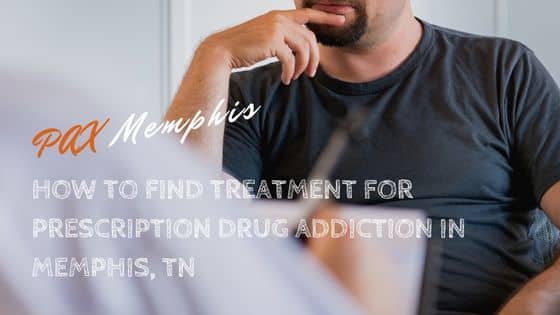Many people assume that the medications their doctor prescribes are perfectly safe. But some prescription medications can affect your body and brain in ways that make it difficult to stop using them when you want to. Some addictive prescription drugs cause pleasurable side effects that make people want to take them more frequently or in higher doses than prescribed–or to use them recreationally without a prescription.
Prescription drug addiction is a serious condition that requires immediate treatment to avoid potentially life-threatening complications. If you or a loved one takes prescription drugs, you must learn about the risk of addiction and how to get help.
How Does Prescription Drug Addiction Develop?
When a person takes more of a medication than prescribed or uses a prescription medication recreationally for a prolonged period, their body may adapt to the presence of the drug. The person may require more medication to get the desired effects–this is called developing tolerance.
After a period of heavy or prolonged prescription drug abuse, the body may come to depend on the presence of the drug to function. If the person attempts to stop using the drug or to cut back, they are likely to experience uncomfortable–sometimes dangerous–withdrawal symptoms, including intense cravings.
Addiction is defined as a loss of control over drug use. People who develop drug dependence require treatment for prescription drug addiction that can help them overcome this complex, serious condition.
What Are the Most Commonly-Abused Prescription Drugs?
Some commonly-prescribed medications have the potential to lead to addiction. These addictive prescription medications generally fall into four distinct categories.
Opioids
Doctors may prescribe opioids to help people manage moderate to severe pain due to an injury, surgery, or chronic condition. Opioids alter a person’s brain chemistry and quickly lead to tolerance–needing more of the drug to get the same effects–and dependence. These drugs include:
- Fentanyl
- Hydrocodone
- Morphine
- Oxycodone
Anti-anxiety and sedative medications (benzodiazepines)
Doctors sometimes prescribe benzodiazepine medications that help reduce the symptoms of anxiety and panic. Some of these drugs have a high risk of dependence and addiction, including:
- Nembutal
- Ambien
- Xanax
- Valium
Stimulants
Prescription stimulant medications can give people more energy and focus, allowing them to sustain attention and manage conditions like ADHD. But some of these medications can be addictive, including:
- Ritalin
- Adderall
- Dexedrine
- Mydayis
Those who take these and other addictive prescription drugs must be aware of the signs of addiction and seek immediate support and treatment to regain control over their health and safety.
Do I Need Treatment for Prescription Drug Addiction?
While recreational prescription drug use is more likely to lead to addiction, anyone using these medications can develop dependence or addiction–even under medical supervision. It’s essential to recognize the signs of addiction and seek treatment as soon as possible.
The signs of prescription drug addiction include:
- Needing to take more of the drug to get the desired effects
- Feeling like you can’t control your prescription drug use
- Experiencing withdrawal symptoms and cravings if you stop using the drug
- Having significant changes in your appearance, mood, sleep, or appetite
- Facing legal or financial trouble related to your drug use
- Neglecting your responsibilities at work, home, or school
- Isolating
- Hiding or lying about your prescription drug use
- Doctor shopping–having multiple prescriptions from several doctors
- Continuing to use prescription drugs despite facing the negative consequences of your drug abuse
Addiction is a complex condition that no one chooses for themself. Anyone taking prescription drugs–even under a doctor’s care–can develop an addiction to them. All people deserve compassionate, comprehensive prescription drug rehab in Tennessee to help them overcome this life-threatening condition.
What Happens in Prescription Drug Addiction Treatment?
Treatment for prescription drug addiction occurs in stages designed to address addiction’s physical, behavioral, and emotional aspects. Before beginning treatment, a doctor or addiction specialist will assess your needs and recommend a level of care to meet your needs.
Many people begin treatment in a medically-supported detox program. Medical and support staff will monitor and treat your withdrawal symptoms during detox with medications, holistic therapies, and emotional support.
After completing detox, you will participate in a prescription drug rehab program that uses a combination of evidence-based and holistic therapies to support recovery. These therapies include:
- Group therapy
- Individual counseling
- Medications
- Mental health and medical care
- Education
- Family counseling
- Holistic therapies like nutrition counseling, mindfulness, exercise, and massage
Doctors and other medical practitioners will focus on helping you to manage the symptoms of your withdrawal and finding new ways of treating pain, anxiety, and other conditions. During treatment, you will find support and develop new skills to help you avoid relapse for life.
Prescription drug addiction treatment centers in Memphis, TN can give you a fresh start in life and help you develop new, healthy habits that support a lifetime of sobriety.
Find a Prescription Drug Rehab in Memphis, TN Today
Don’t wait for the support and treatment you need to overcome addiction. Reach out to the PAX Memphis team today to learn more about starting one of our holistic, comprehensive treatment programs.
Medically Reviewed: September 25, 2019

All of the information on this page has been reviewed and verified by a certified addiction professional.










